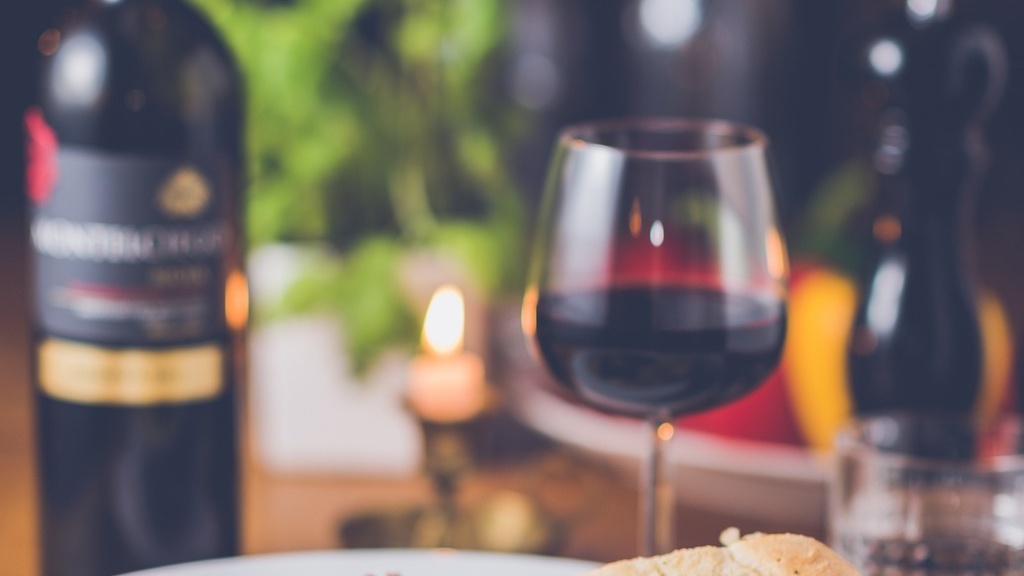Wine Tours In Tavel, France
Wine lovers often plan trips around not only the destination but also the wine regions in that vicinity. One such destination that is known for its wine is Tavel, located in the Rhone Valley of

Wine lovers often plan trips around not only the destination but also the wine regions in that vicinity. One such destination that is known for its wine is Tavel, located in the Rhone Valley of France. Situated about 20 km northwest of Avignon, Tavel is renowned for its rosé wine varieties. In this article, we will delve into the world of wine tours in Tavel and what makes it a must-visit destination for wine enthusiasts.
Tavel is primarily known for its rosé wine of a deep pink hue, which is said to have a fruity flavor and slightly spicy aftertaste. It is considered to be one of the few towns in France that only produces reputedly high-quality rosé wines. The vineyards in Tavel differ from others in the sense that they use a higher content of black grape varieties in the production process. This has rendered the wine a fuller-bodied taste compared to others in the region, which often use white grapes.
Most of the wine production is done through family-owned wineries in Tavel, with over 50 vineyards covering the area. The famous vineyards in Tavel include Domaine de la Mordorée, Château d\’Aqueria, and Domaine de L\’Olivette. These wineries are known for their exceptional wine-tasting experiences and vineyard tours, which give visitors an insight into the wine-making process.
Visiting Tavel for a wine tour is an experience that lingers in the memory of visitors for a long time. It is said that the wine-tasting experiences here are both educational and indulgent, and visitors learn a great deal about the history and legacy of wine-making in the region. There are several tours that visitors can choose from, ranging from half-day experiences to full-day expeditions.
One of the most popular tours is the Wine and Chocolates tour, where visitors not only get to taste different wines but also pair them with chocolates to enhance the taste experience. Another popular tour is the Organic and Biodynamic tour, where visitors get to witness the process of wine-making without the use of chemicals, pesticides, and herbicides. This is a unique experience, as only a few wineries in Tavel produce organic or biodynamic wines.
For those who go beyond wine-tasting and want to experience a more immersive way of life, there are several vineyards in Tavel that offer accommodation facilities. Staying at a vineyard provides a true feeling of what it takes to be a winemaker, and visitors can also participate in exciting activities that cater to their interests like cycling, hiking, and horse-riding.
In conclusion, Tavel is undoubtedly one of the most sought-after destinations for wine lovers, and the wine tours offered here are ideal for anyone looking to learn about the history and tradition of wine-making. The intimate wine-tasting experiences, the picturesque vineyards, and the knowledgeable guides make the journey unforgettable. So, pack your bags and head to Tavel for a one-of-a-kind wine adventure!
History of Tavel Wine
The history of Tavel wine dates back to the Roman era when the region was known as the ‘Garden of Avignon.\’ It was said that the Roman Emperor, Julius Caesar, was so impressed with the wine here that he introduced it to his legionnaires. Over the years, Tavel\’s wine-making tradition has been passed down through generations, with families nurturing vineyards that produce award-winning wines.
The Tavel wine industry faced several setbacks in the 20th century, including a phylloxera epidemic in the 1920s and the two World Wars. However, the winemakers of Tavel were determined to revive the industry, and in the 1950s, they began to focus solely on the production of the rose variety by abandoning the production of red and white wines. This led to Tavel gaining an international reputation for producing some of the best rose wines in the world.
Today, Tavel wine classification is an Appellation d’Origine Contrôlée (AOC), which means that the wines here are monitored by the French government to ensure that they meet certain standards.
Distinctive Features of Tavel Wine
The production of Tavel wine is distinctive compared to other wine regions in France. Here, the use of a higher content of black grapes gives the wine a full-bodied taste that is unique to Tavel. Additionally, the winemakers in the region have adopted a new winemaking technique known as the ‘bleeding\’ of the grapes.
This technique involves soaking the grapes for a short time to extract the color and flavor before separating the skins from the juice. The skins are then used to make red wine, while the juice is used to produce rose wine. This method ensures that the rose wine produced here has a deeper pink hue, more tannin, and greater aromas than other rose wines.
The Tasting Process of Tavel Wine
Tasting Tavel wine is an experience that involves all the senses. The wine is poured into a traditional curved Tavel glass, which is smaller than a standard wine glass. The aroma of the wine is then inhaled, and the color is observed, which is a deep pink hue.
On tasting, the wine has an herbaceous and floral aroma, and on the palate, it is dry, with a fruity flavor and a mildly spicy aftertaste. The wine has a higher alcohol content than other rose wines due to its full-bodied taste.
Wine-Making Techniques in Tavel
The wine-making process in Tavel is a complex process that requires attention to detail and patience. Here, the grapes are hand-harvested and sorted to ensure that only the best quality grapes are used. The grapes are then destemmed, crushed, and placed in stainless steel tanks, where they are fermented.
The temperature is closely monitored during fermentation to ensure that it remains between 18-22 degrees Celsius, and the fermentation process lasts for about two weeks. After fermentation, the wine is aged in wooden barrels for six months to give it its full-bodied taste.
Tavel Wine in Pop Culture
Tavel wine has been mentioned in many literary works over the years, including works by William Shakespeare and Ernest Hemingway. In Shakespeare’s plays, Falstaff refers to wine from Tavel several times, calling it \’fair-spoken’ and ‘most sweet and comfortable.\’
In Hemingway\’s novel, \’A Moveable Feast,\’ he writes, \’We drank Tavel and ate trout that smelled of the river, and drank new wine and ate grilled pork and sausages.\’
Tavel wine has also gained popularity in the film industry. The 2004 movie \’Sideways\’ features a scene where the actor Paul Giamatti drinks Tavel wine and praises it as the \’perfect wine for the Thanksgiving meal.\’

